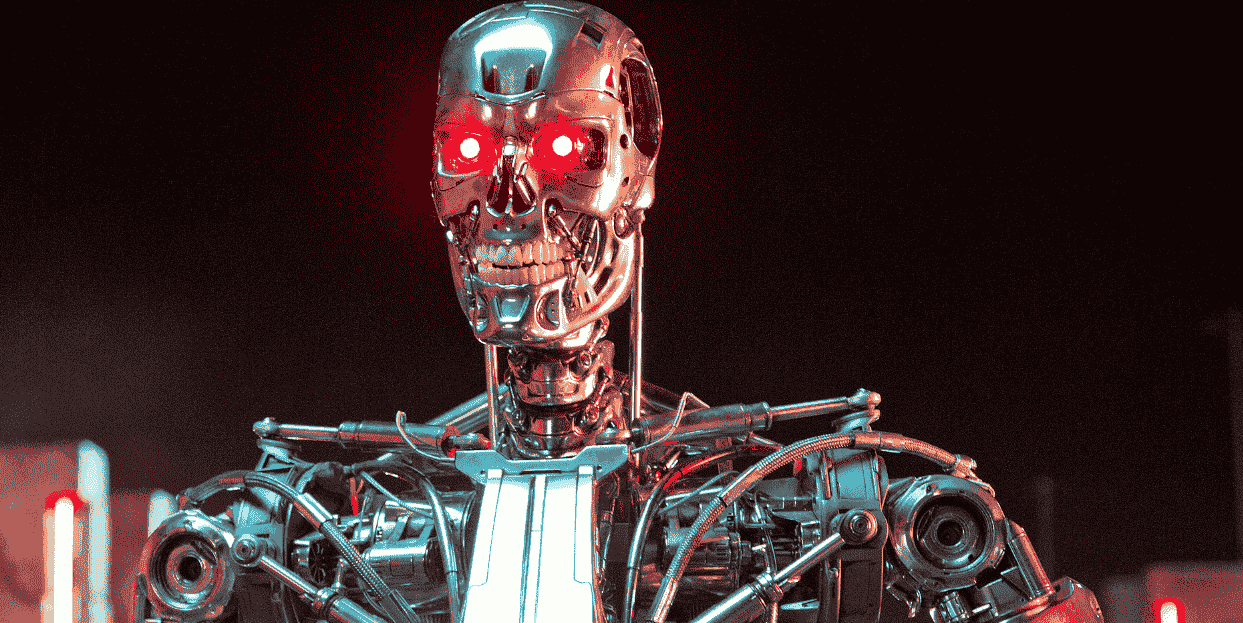
Gen Collins, a top military commander, predicts that the British Army may employ robots on battlefields by 2030.
The senior officer wrote in the British Army Review that a robot should make initial contact with a potential opponent on the battlefield within seven years.
UK Seeks To Minimize Human Involvement
Such statements evoke images from the Hollywood blockbuster Terminator, in which autonomous machines waged war against the human species without mercy.
But, these concerns are no longer science fiction. Already, autonomous and semi-autonomous drones are employed in warfare to hunt, target, and kill humans.
Currently, the majority of drones and unmanned land and marine vehicles require human input. Yet, this circumstance is expected to change, and the conflict in Ukraine will accelerate the advancement of totally autonomous science.
The effort follows a heightened emphasis on the strategic significance of bridges in the Ukrainian conflict. The dramatic but as a yet unexplained explosion on the Kerch crossing in Crimea in October, which rendered substantial portions of the £3bn bridge inoperable, is seen as one of the most significant strategic and media victories for Kyiv thus far in the conflict.
The Kremlin has previously suggested that the United Kingdom was involved in the planning of the Kerch raid and separate attacks on Russian naval vessels in the Black Sea using autonomous drones, but it has failed to provide proof to support its accusations.
The £400,000 A Bridge To Fall bridge demolition project is the latest attempt to place cutting-edge technologies such as artificial intelligence and machine learning at the center of efforts to provide the British military a battlefield advantage.
An MoD briefing states that it now takes up to 30 specialized Royal Engineers to demolish a single bridge, forcing them to assess the structure at close range and exposing them to a dangerous situation if enemy forces attempt to halt the destruction. It adds that it intends to replace this resource-intensive methodology and lower the number of Royal Engineers required to demolish a bridge.
Instead, the Defense Science and Technology Laboratory (DSTL), which is in charge of the project, wishes to investigate technology that will ultimately reduce human involvement in bridge explosions. The document reads, Ideally, only human decision-making on timing and legal liability would remain.
Read more: Japanese space agency loses $200 million satellite due to H3 rocket launch failure
Robots to Help British Army

Commanders are requesting a device capable of recognizing weak places in a modern concrete and steel bridge and determining where to lay charges, as well as physically placing the explosives.
The briefing document advises that contractors should build uncrewed cross-domain vehicles that can operate on land, air, and water.
According to defense sources, the tender, which calls for a prototype to be ready within six to nine months, should be viewed in the context of Britain’s artificial intelligence policy, which was announced last summer and aims to make the UK military the most effective, efficient, trusted, and influential of its size when it comes to AI deployment.
One military demolition expert expressed uncertainty that technology could fully replace the trained men that are currently required to demolish a large bridge.

